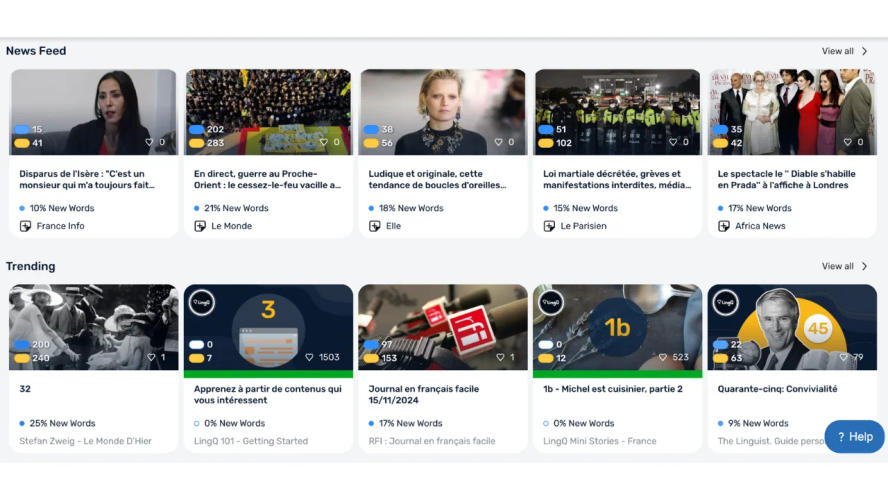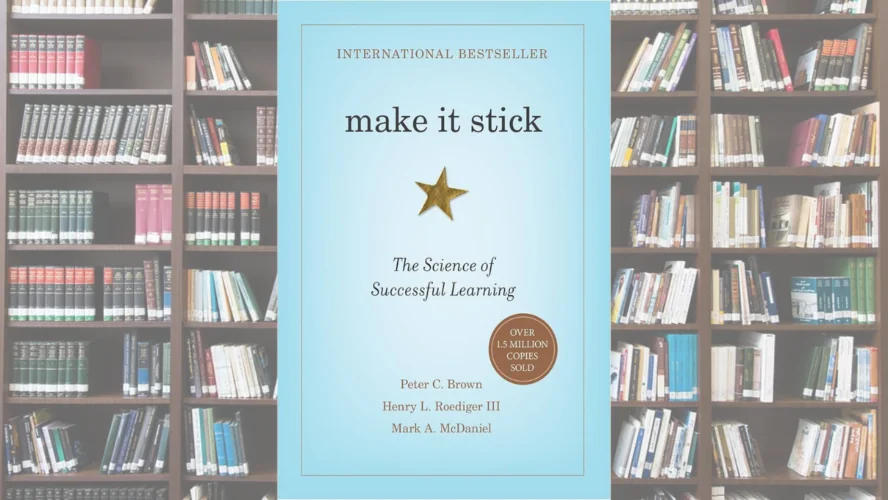In the quest to master new skills or languages, one challenge stands out: making information stick. Drawing inspiration from Peter C. Brown’s Make It Stick, we’ll take a look at some effective learning strategies, specifically in regards to retention. Afterwards, I’ll share how this insight directly benefits us as language learners.
What Doesn’t Work: The Key Misconception
Many learners fall into the trap of block learning—repeatedly focusing on one topic or set of material in a single, uninterrupted session. Forcing yourself to re-read, endlessly highlight, or underline material is not only unpleasant, but actually counterproductive.
This approach to learning is less successful because we retain information more effectively when we space out our studies. To retain knowledge in the long term, we should consistently revisit the material and see it appear in different contexts.
What Works: Strategies for Sticky Learning
1. Space Out Your Learning Activities
Instead of cramming, spread out your learning over time. Revisit the material after a few days or even weeks. This spacing encourages your brain to reinforce connections. Consistently doing this makes it easier to recall information over increasingly longer periods of time.
2. Interleave Topics and Materials
Rather than mastering one resource before moving to the next, interleave your studies. What does this mean? For example, read different books about a historical period or explore different types of beginner content from various language courses.
Encountering similar information from multiple perspectives enriches your understanding and strengthens memory. You’re no longer just reviewing the same material, but making connections and absorbing key recurring information.

3. Practice Active Retrieval
Testing yourself—even informally—reinforces knowledge. In language learning, speaking or writing requires you to actively and spontaneously create with your knowledge of the language. Newly acquired words or phrases solidify in your mind when you constantly recall them in conversation.
However, this can also look more passive. Interleaving topics and materials, in fact, is a form of active retrieval. When reading different books about the same historical period, you’re indirectly recalling previous knowledge while engaging with new material.
4. Embrace a Desirable Level of Difficulty
Challenging material that stretches your current abilities encourages deeper engagement. This purposeful interaction helps you retain knowledge better and keeps you more engaged than sticking to content that feels too easy or repetitive.
How does this Apply to Language Learning?
Language Learning as a Model for Sticky Learning
An input-based approach to language learning mirrors the principles in Make It Stick. If you want the language to stick, you need to engage with the language consistently (spacing), consult a wide variety of content (interleaving), and test your knowledge through spontaneous speaking and writing (active retrieval).

Struggle A Bit Before Seeking Explanation
Dive into a new language before relying on grammar rules. Attempting to understand the mechanics of a language through lengthy explanations can be a form of block learning. Instead, develop your understanding of sentence structures, verbs, and patterns over time through large amounts of reading and listening. Once you’ve wrestled with the language, consult grammar explanations to clarify your observations. This method fosters curiosity and helps you develop a true sense of intuition with the language.
Final Thoughts: Learning That Lasts
The insights from Make It Stick show that an independent learner—someone who consistently follows their curiosity and puts their knowledge to the test—will more effectively retain what they’ve learned. Effective strategies emphasize interaction, variety, and patience.
Whether you’re learning a language or hoping to reap greater benefit from your studies in general, the key lies in constantly following your curiosities and recalling what you’ve learned along the way. For language learners, this means immersing yourself in content, habitually revisiting it, and actively applying your knowledge in conversation and writing.
Adopt these effective learning strategies, and you’ll not only remember more—you’ll enjoy the process.





comments on “Effective Learning Strategies From “Making it Stick””